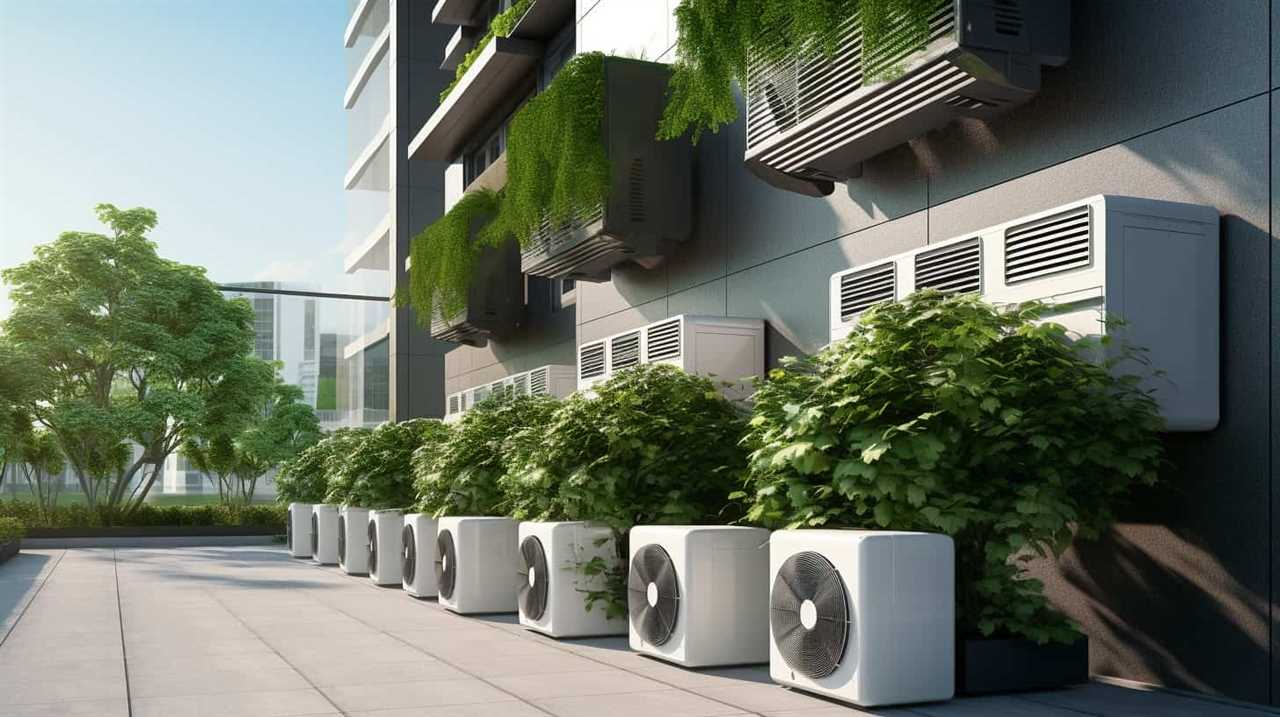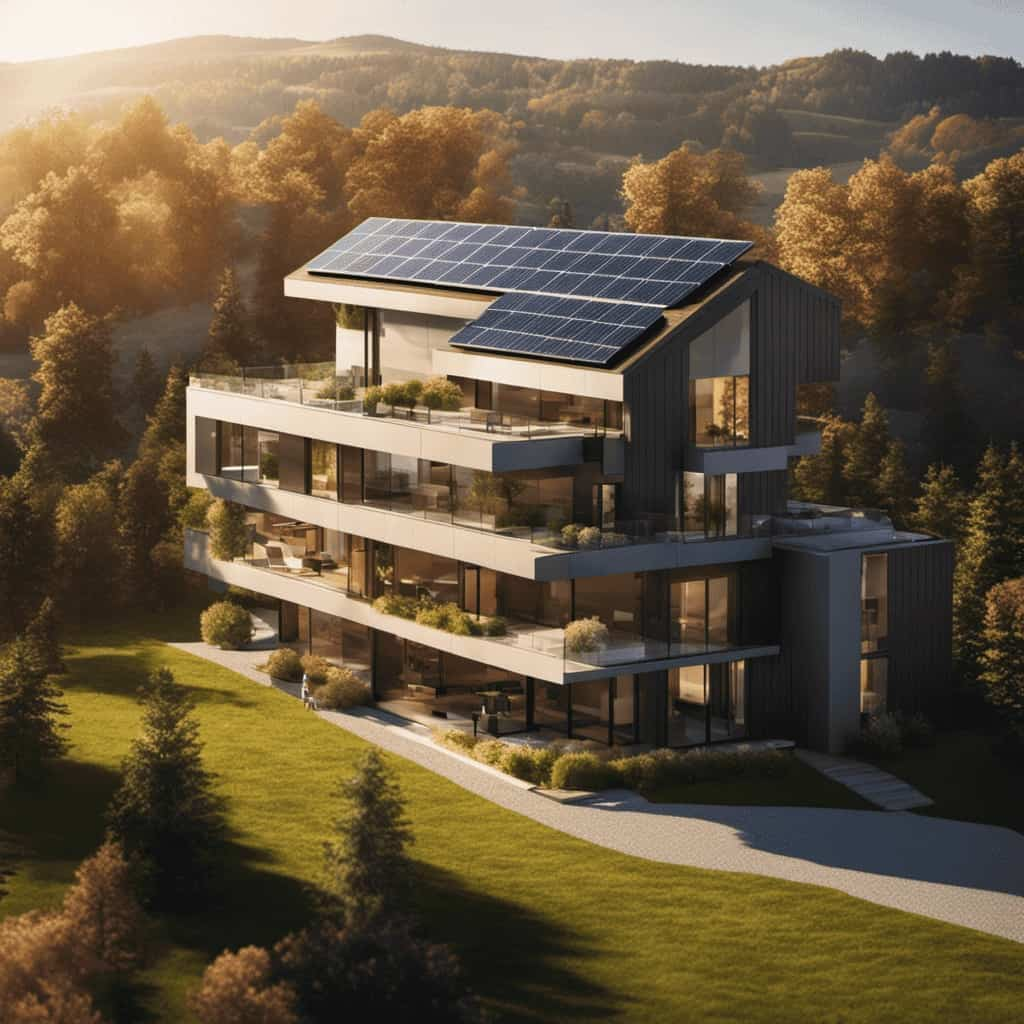Are you looking to save energy and maximize the efficiency of your heat pump? Look no further! In this article, we will share tips and strategies that will help you achieve significant energy savings.
With our expert advice, you can optimize the performance of your heat pump, implement energy-saving strategies, and even integrate it into your smart home system.
Don’t miss out on the opportunity to save money and reduce your carbon footprint. Let’s get started!
Key Takeaways
- Selecting a heat pump with higher SEER and HSPF ratings improves energy savings.
- Adjusting thermostat settings according to seasons maximizes heat pump efficiency.
- Regular maintenance, such as cleaning or replacing air filters, improves performance.
- Smart home integration enhances energy savings with heat pump systems.
Understanding Heat Pump Efficiency
We’re diving into understanding heat pump efficiency, maximizing energy savings.
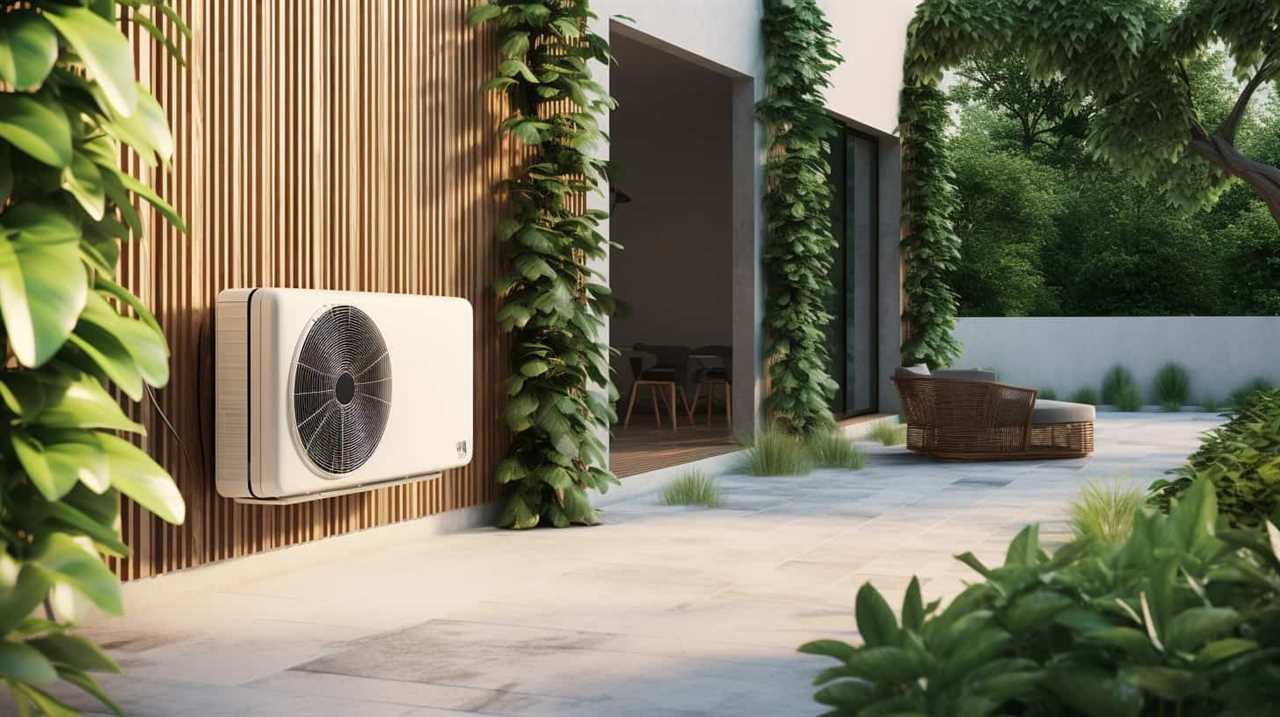
When it comes to heat pump operation, efficiency is key. Heat pump technology works by transferring heat from one place to another, rather than generating heat directly. This makes it a more energy-efficient option compared to traditional heating and cooling systems.
To achieve optimal efficiency, it’s important to consider factors such as the size and layout of your space, as well as proper installation and maintenance. Additionally, selecting a heat pump with a higher Seasonal Energy Efficiency Ratio (SEER) and Heating Seasonal Performance Factor (HSPF) can greatly improve energy savings.
Understanding the ins and outs of heat pump efficiency will allow you to make informed decisions and maximize energy efficiency in your home or business.
Tips for Optimizing Heat Pump Performance
To maximize heat pump performance and achieve optimal energy savings, we recommend following these tips.
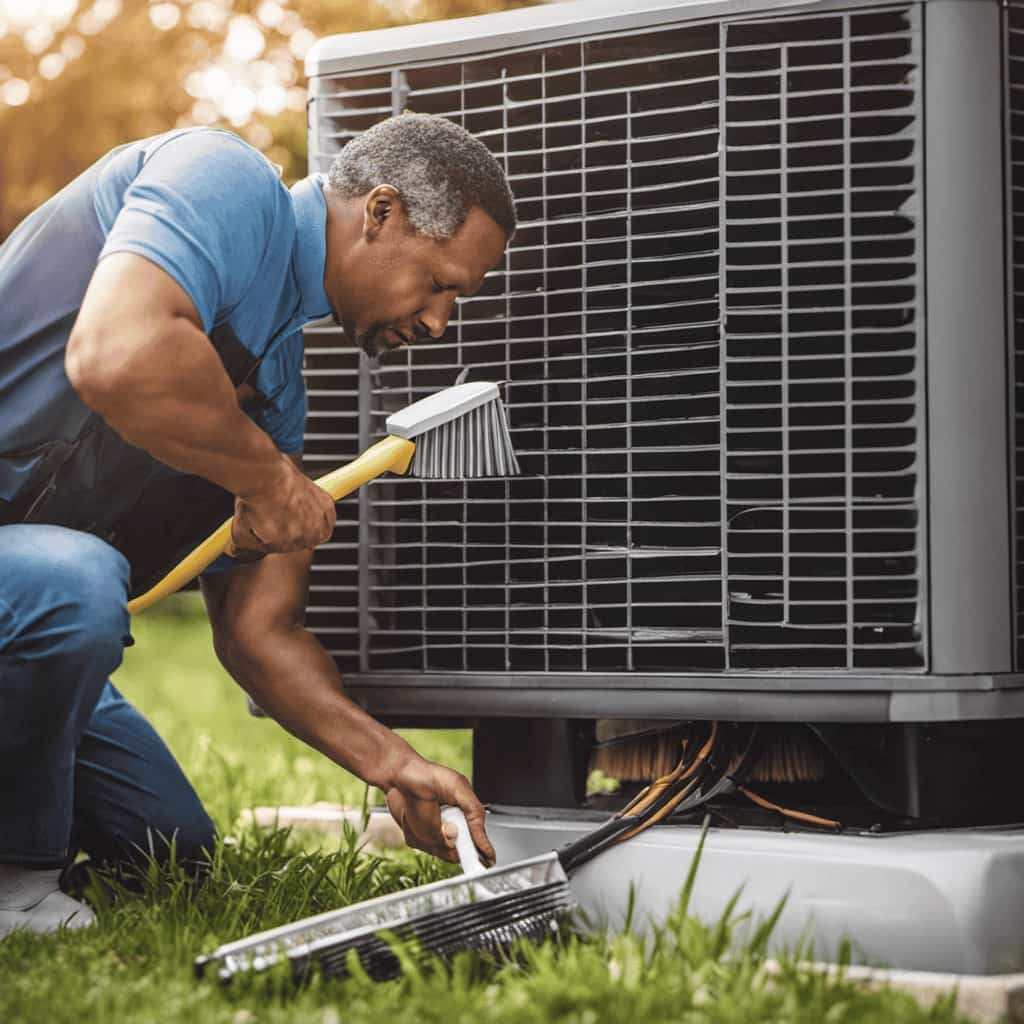
-
Making seasonal adjustments and optimizing thermostat settings are key factors in maximizing heat pump efficiency. By adjusting the settings according to the changing seasons, you can ensure that your heat pump operates at its peak performance.
-
During the winter months, set the thermostat to a lower temperature when you’re away from home to save energy. In the summer, raise the thermostat a few degrees to reduce the workload on the heat pump.
-
Additionally, utilizing programmable thermostats can help you automate these adjustments and save even more energy.
By implementing these simple tips, you can optimize your heat pump’s performance and achieve significant energy savings.
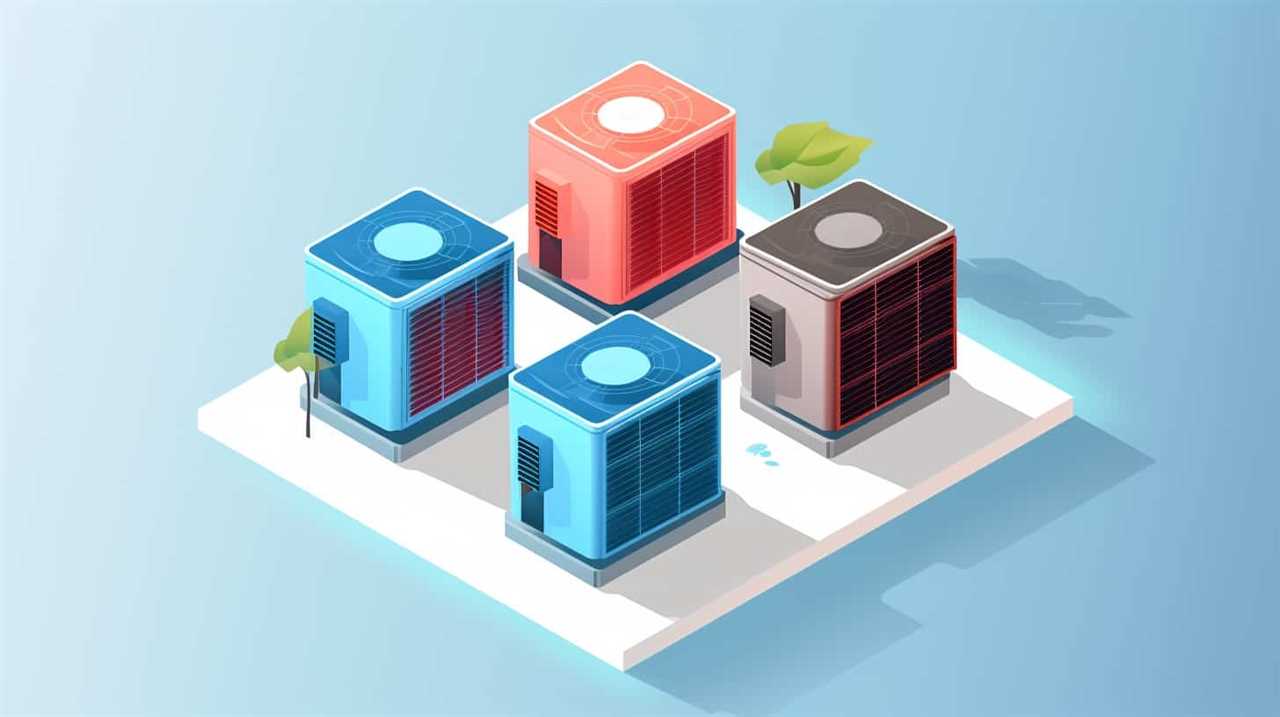
Now let’s move on to explore energy-saving strategies for heat pump usage.
Energy-Saving Strategies for Heat Pump Usage
Our primary goal is to maximize heat pump efficiency and achieve energy savings through effective strategies.
To achieve this, we need to implement energy-saving tips and cost-effective solutions for heat pump usage. One important strategy is to properly size and install the heat pump, ensuring it’s suitable for the size and demands of the space it’s serving.
Regular maintenance, such as cleaning or replacing air filters, is essential for optimal performance. Additionally, adjusting the thermostat to recommended temperatures and utilizing programmable thermostats can help reduce energy consumption.
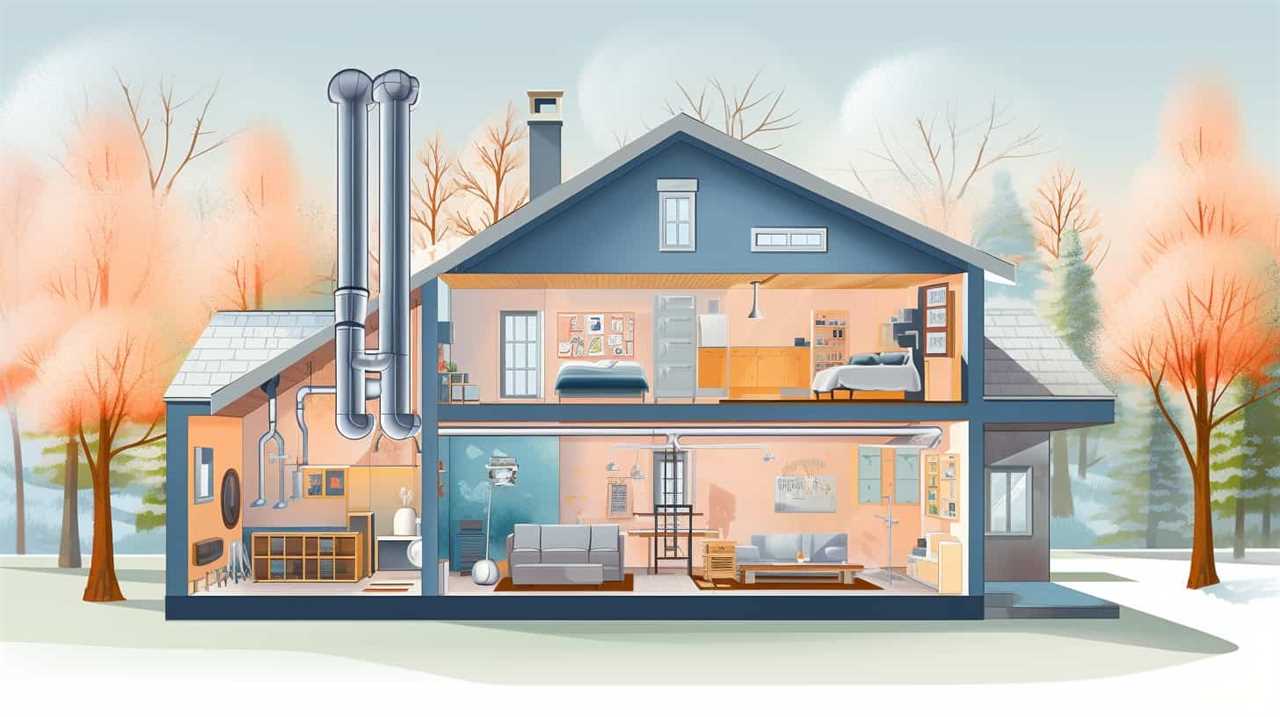
Insulating and sealing the ductwork, as well as insulating the walls, floors, and windows of the building, can prevent heat loss and improve efficiency.
Maintenance and Cleaning for Improved Efficiency
Regular maintenance and cleaning are crucial for improving the efficiency of our heat pump system. Adhering to a proper maintenance schedule ensures that our heat pump operates at optimal performance levels, reducing energy consumption and maximizing savings. One essential aspect of maintenance is regular filter replacement. Filters play a vital role in maintaining indoor air quality by capturing dust, debris, and allergens. Over time, filters become clogged, obstructing airflow and forcing the heat pump to work harder. By replacing filters on a regular basis, typically every 1-3 months depending on usage and air quality, we can prevent system inefficiencies and maintain optimal performance. This simple maintenance task can lead to significant energy savings and prolong the lifespan of our heat pump system.
| Maintenance Schedule | Filter Replacement |
|---|---|
| Every 1-3 months | Regular basis |
Smart Home Integration for Enhanced Energy Savings
By integrating smart home technology, we can achieve enhanced energy savings with our heat pump system. Smart home integration allows us to take advantage of advanced features such as energy monitoring and remote control.
Here are five benefits of smart home integration for improved energy efficiency:
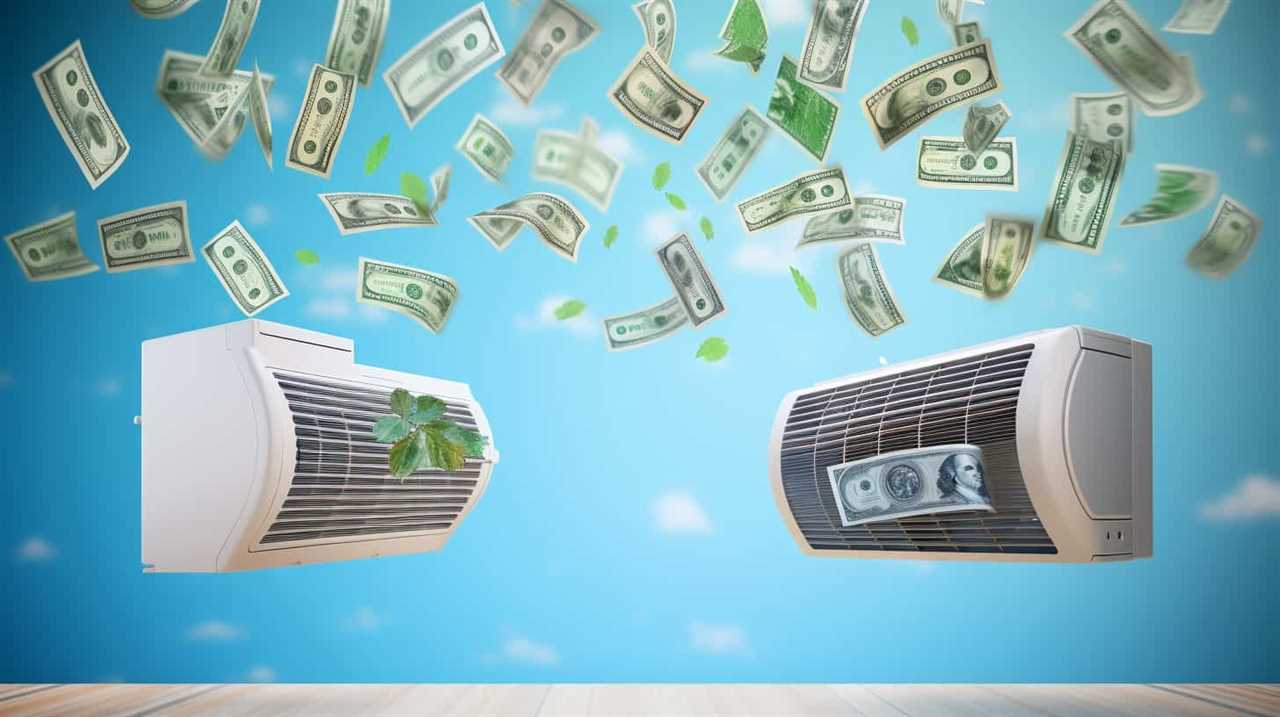
-
Energy monitoring: Smart home systems provide real-time data on energy consumption, allowing us to identify areas of inefficiency and make necessary adjustments.
-
Remote control: With smart home technology, we can control our heat pump system from anywhere using our smartphones or tablets, optimizing energy usage based on our needs.
-
Smart scheduling: Smart home systems enable us to create customized schedules for our heat pump, ensuring it operates efficiently when we need it the most.
-
Integration with other smart devices: By integrating our heat pump with other smart devices in our home, we can create a more holistic and efficient energy management system.

-
Energy-saving recommendations: Smart home systems can analyze our energy usage patterns and provide recommendations for further energy savings.
With smart home integration, we can maximize the efficiency of our heat pump system and achieve significant energy savings.
Frequently Asked Questions
How Much Does a Heat Pump Installation Cost?
Heat pump installation prices vary depending on factors such as the size of the unit, the complexity of the installation, and any additional features. These factors can significantly affect the overall cost of the installation.
Are There Any Government Incentives or Rebates Available for Heat Pump Installations?
Yes, there are government incentives and rebates available for heat pump installations. These incentives aim to promote energy savings and encourage the use of more efficient heating systems.

Can a Heat Pump Be Used as the Sole Source of Heating and Cooling in a Home?
Using a heat pump as the sole source of heating and cooling in a home has pros and cons. Heat pumps are more energy efficient compared to traditional HVAC systems, but their effectiveness can be affected by extreme temperatures.
What Is the Average Lifespan of a Heat Pump?
The average lifespan of a heat pump depends on various factors such as usage, maintenance, and quality. Regular heat pump maintenance and prompt identification of signs of failure can help maximize its lifespan.
Are There Any Specific Requirements for the Location or Placement of a Heat Pump?
When considering heat pump efficiency, it’s important to take into account the location and placement of the unit. Proper heat pump location and placement can greatly impact its performance and energy savings.
Conclusion
In conclusion, maximizing heat pump efficiency is crucial for achieving significant energy savings.

By understanding how heat pump efficiency works and implementing the tips and strategies mentioned in this article, homeowners can enjoy a more efficient and cost-effective system.
Just like a well-tuned engine can propel a car forward with less fuel, a well-optimized heat pump can provide optimal heating and cooling with less energy consumption, leading to a greener and more sustainable future.

